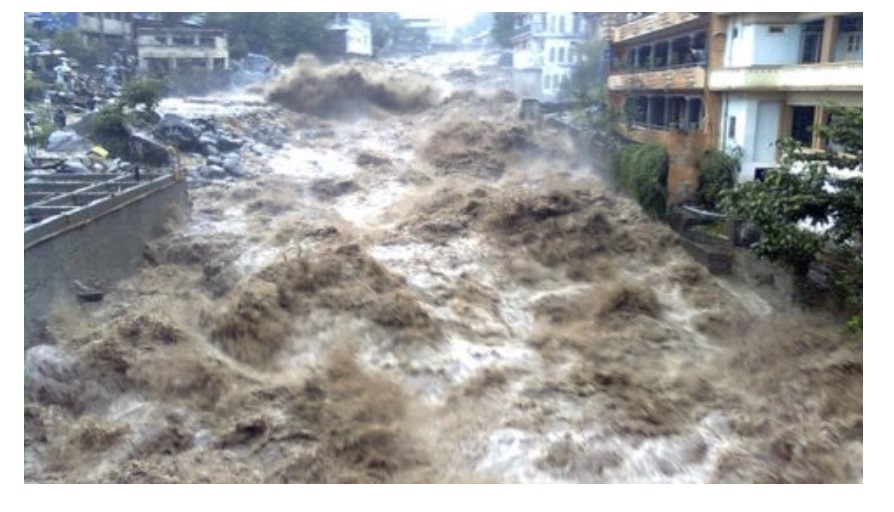From flash floods to forest fires, drought to “sea snot”, Turkey is bearing the brunt of increasingly frequent disasters blamed on climate change, putting pressure on President Recep Tayyip Erdogan to act. While Turkey’s disasters are “natural” what magnifies their impact on the economy and human life is Erdogan’s 20 years of neglecting the environment and raping the land to extract rant for his cronies.
Wildfires that have killed eight people since late July across southern coastal regions, ravaging forests and turning villages to ash, followed the growth of a slimy mucus in the Sea of Marmara that destroyed marine life.
Deadly floods in the northeast followed an arid spell that dried up dams, endangering water supplies. Sinkholes caused by water mismanagement are encroaching on farmers’ homes.
WATCH: Turkey’s Annus Horribilis | Real Turkey
Experts warn the vast, geographically diverse country risks fighting rolling disasters if it does not forcefully confront climate change, which is warming sea temperatures in regions such as the Mediterranean.
A landmark UN report this week warned that global warming is occurring far faster than forecast.
The issue is turning increasingly political, with polls showing it registering highly with up to seven million members of Generation Z who will be able to vote in the next election, slated for 2023.
Experts and environmentally-conscious politicians put ratifying the 2015 Paris Agreement adopted by 196 countries on top of Turkey’s to-do list.
Turkey is one of only six nations, including Iraq and Libya, yet to formally approve the accord.
“This is the first step. We must become a part of the global fight against climate change,” said Greens of Turkey Party spokeswoman Emine Ozkan.
– ‘No comprehensive policy’ –
Climate Action Tracker, a think tank that evaluates national emissions reduction plans, said Turkey’s effort towards the accord’s goals was “critically insufficient”.
Ankara argues the agreement unfairly classes Turkey as “developed” rather than “developing”, which would give it access to funding.
But experts say Turkey is making the mistake of failing to see critical issues such as food security and intensifying drought as linked.
“I don’t see Turkey having any comprehensive and holistic climate change policy that addresses everything in an interconnected way,” said water and climate policy researcher Gokce Sencan.
“You cannot separate food security issues from energy security issues, and food prices from the issue of drought.”
Fossil fuels made up 83 percent of Turkey’s energy supply in 2019.
The International Energy Agency this year praised Ankara’s efforts to diversify its energy mix, with “impressive” renewable energy growth.
But environmentalists raise concern over Turkey’s reliance on polluting coal, since Ankara has plans to expand domestic coal power capacity despite targeting a greenhouse gas emissions cut of up to 21 percent by 2030.
– Drought the ‘biggest risk’ –
Turkey last month registered its highest temperature since 1961 at 49.1 degrees Celsius (120.4 Fahrenheit) in the southeastern town of Cizre.
Experts say drought will remain a critical problem with far-reaching effects not only on food production but also Turkey’s relations with its neighbors, which are fighting for water rights.
Dam levels and farmers’ production have suffered from below average precipitation since 2019.
Turkey’s farmers were already dealt a heavy blow, as the Erdogan administration put pressure on food retailers to keep pries low, an effort which reverberated all the way up the supply chain to below-cost farm gate prices. An estimated 2 million hectares of farm land is reported to lay idle, as farmers migrate to cities.
“Drought is the biggest risk that we’re facing right now,” Sencan said.
Levent Kurnaz, director of Bogazici University’s centre for climate change and policy studies, said the issue was directly related to food and agriculture.
“If you cannot feed yourselves then you’re in big trouble,” Kurnaz said.
Erdogan heeded the calls and organized a water council meeting in March, but specialists say the government is not taking the issue seriously enough.
“The government supposedly acknowledges climate change but it does not take the initiative to look at the real problems that cause it,” said Ozkan, whose party has not been formally registered despite applying last year.
Kurnaz pointed to water’s wider impact in the region since Turkey sits on top of two legendary rivers, the Tigris and Euphrates, which flow to Syria and Iraq.
“If we don’t have enough water, they will not have enough water and that’s a problem in international relations,” Kurnaz told AFP.
Turkey is using its precious water resources very wastefully by refusing to impose fair water usage charges on industry and recycling sewage water.
Sencan said the key is to build water resilience because climate change will see the amount of precipitation in the eastern Mediterranean region fall.
Public concern for the environment is growing, with a November 2020 study showing 70 percent of Turks worried about the issue.
For Kurnaz, no single country is prepared for the climate crisis, with both central and local authorities “underestimating” the issue.
“If you don’t learn and something larger happens then you will once again be unprepared,” Kurnaz said.
While climate change is unavoidable what makes it so menacing for Turkey is Erdogan’s supposedly pro-development polices, which opened natural preserves and beaches to development. As a result, forests are scarred by luxury condos and hotels, which multiplies the damage of wildfires. Additionally, a forest burned is usually not rehabilitated, but sold by Treasury for commercial development.
Turkey’s coming generations will pay dearly for Erdogan’s rapacity for profit.
Follow our English language YouTube videos @ REAL TURKEY: https://www.youtube.com/channel/UCKpFJB4GFiNkhmpVZQ_d9Rg
And content at Twitter: @AtillaEng
Facebook: Real Turkey Channel: https://www.facebook.com/realturkeychannel/
